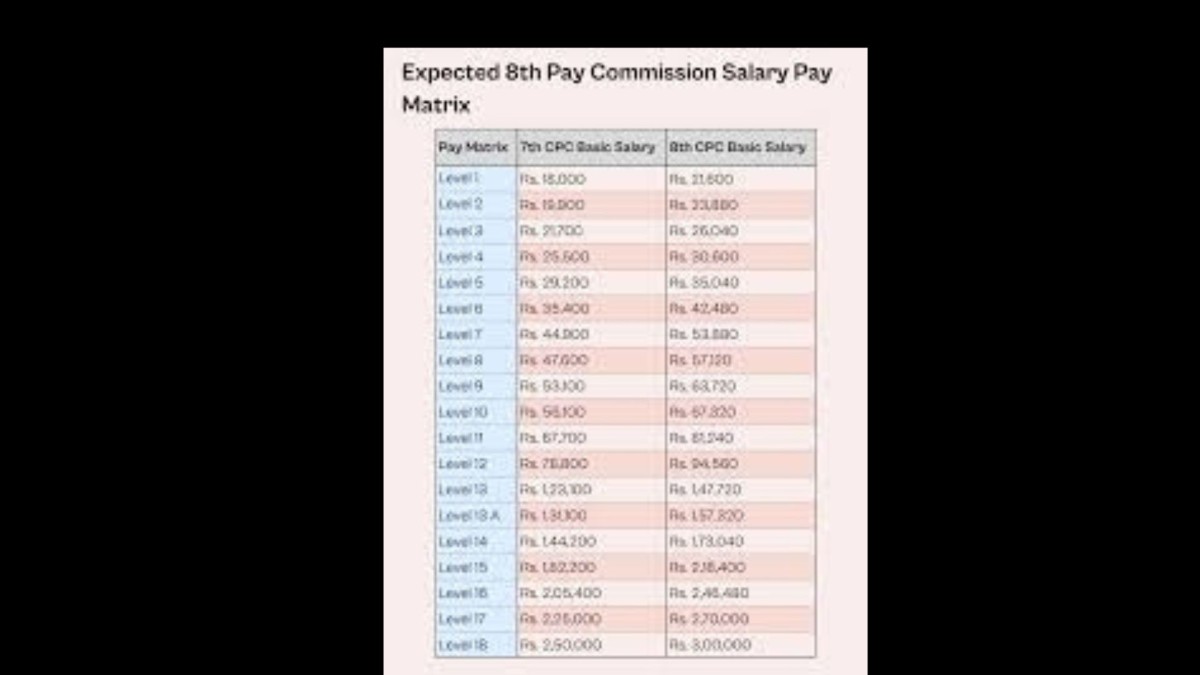8th Pay Commission Salary As discussions around the 8th Pay Commission gather momentum, government employees and pensioners are closely watching how the recommendations will balance rising living costs with salary adjustments. Historically, every pay commission has been introduced to revise central government employees’ salaries and allowances in line with inflation, productivity, and fiscal capacity of the government.
The 6th Pay Commission (2006) brought a major overhaul in pay bands and grade pay, boosting disposable income significantly. However, the 7th Pay Commission (2016), though offering a 14% hike in basic pay, was seen as modest compared to earlier commissions. Critics argued that it failed to fully offset inflation, particularly as prices of essential goods, healthcare, and housing surged.
With inflationary pressures now at multi-year highs, employees argue that the 8th Pay Commission, expected around 2026, must factor in real purchasing power, not just nominal increments. Experts note that while earlier commissions aimed to balance fiscal prudence with welfare, the upcoming one may need to push for sharper increases to prevent erosion of income due to inflation.
The key question remains: will the 8th Pay Commission deliver a meaningful salary revision that genuinely protects workers against inflation, or will it follow the conservative path of the 7th?



One thought on “8th Pay Commission Salary Will the Counter Inflationary Pressure? A Look at Past Trends”